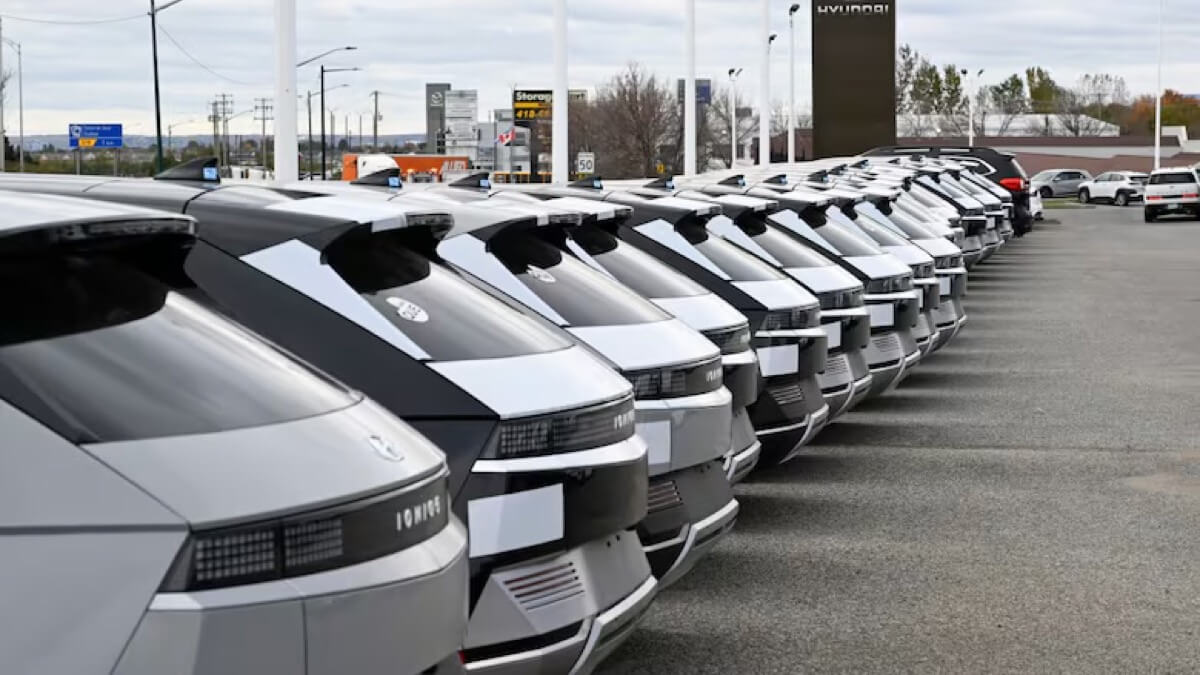The $5,000 incentive that drove thousands to go electric is gone. What happens now?
Canada’s federal EV rebate program, which provided up to $5,000 to buyers of electric vehicles, has officially run out of funding, leaving dealerships, automakers, and potential buyers scrambling. The abrupt halt came months ahead of its expected March 2025 end date, catching many by surprise. Transport Canada confirmed the program was paused due to a “surge of interest” that drained the funds earlier than planned.
Since its launch in 2019, the Incentives for Zero-Emission Vehicles (iZEV) program has helped over 546,000 Canadians afford electric and plug-in hybrid vehicles. The rebate played a critical role in encouraging EV adoption, helping the country reach 16.5% EV sales in the third quarter of 2024. Industry experts had hoped the federal government would replenish the program’s budget, but no additional funding is currently planned.
The sudden end of the program has sparked concerns about the future of EV adoption in Canada. Advocacy groups, including Electric Mobility Canada and Clean Energy Canada, warn that this could disrupt the nation’s climate goals. Canada aims for 20% of all new car sales to be electric by 2026 and 100% by 2035. Without the federal rebate, many worry the rising upfront cost of EVs will slow progress toward these targets.

The ripple effects are already being felt. Buyers who recently placed orders for EVs may find themselves ineligible for the rebate if their paperwork wasn’t submitted before the cutoff. Some provincial programs, like Quebec’s, still offer rebates, but even these are being adjusted. Quebec’s current $7,000 rebate will drop to $4,000 in April, while provinces like Alberta and Ontario have no incentives at all.
Dealerships are particularly frustrated by the lack of communication from the government. Many had no idea the program was ending and now face angry customers who were counting on the rebate to afford their purchases. Automakers like Ford, GM, Hyundai, and Nissan are stepping in to offer discounts to fill the gap, but it’s unclear how long these manufacturer rebates will last.
Critics argue that this sudden change undermines confidence in Canada’s EV strategy. Stable and predictable policies are crucial for maintaining momentum in the shift to zero-emission vehicles. Advocates are calling on the government to reinstate the program or develop a phased approach to reduce dependence on subsidies gradually.
The end of iZEV also raises questions about Canada’s broader EV ecosystem. Billions of dollars have been invested in battery plants and retooling factories for EV production, but a drop in consumer demand could create challenges for these initiatives. Meanwhile, U.S. policy changes under President Donald Trump, including plans to cancel federal EV mandates and tax credits, could also influence EV adoption in North America.
While Canada’s EV market has been steadily growing, the pause on federal rebates introduces uncertainty. Industry leaders fear a slump in sales as buyers face higher upfront costs, while environmental groups worry about losing momentum in the fight against climate change. For now, Canada’s electric vehicle future feels a little less certain.








